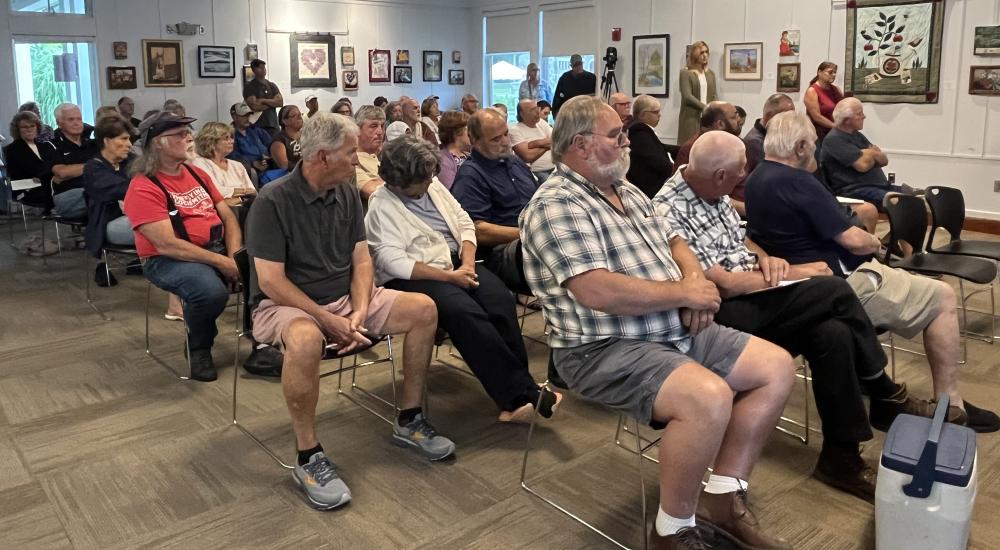Long Pond tax hikes due to property 'reclassification' error, Board says
LAKEVILLE — After forking over real estate tax payments that in some cases reflected a 100% increase over last year’s rates, Long Pond residents learned they may have overpaid due to errors made by the town’s contracted assessor.
This information was communicated to residents in a letter from the Board of Assessors on Monday, Aug. 5, four days after many had paid the first of their preliminary tax bills on August 1.
The letter explained that due to “an incorrect reclassification of property tax bills,” 200 waterfront properties on Long Pond received inaccurate tax assessments that may have forced residents to overpay.
Board of Assessors Chair John Olivieri explained during a meeting on Wednesday, Aug. 7 that the town’s contracted vendor, Regional Resource Group, sent out the tax bills from a document that wasn’t finalized and that was the source of the error.
“The vendor left a file open that shouldn’t have been left open,” he said.
Residents will still have to pay the amount they received on their preliminary tax bills for the first two payments, but the overages will be corrected in the third and fourth payments, the Board explained. The next tax payment will be made in November.
“There is no way for us to undo what has been done,” said Olivieri. “It will correct itself in the third and fourth quarters.”
While residents expressed their appreciation of the Board’s efforts to reconcile the error, they took issue with having to make the first payments and pressed for the need to make process changes so this situation doesn’t happen again.
“Regional Resource Group made a mistake…why are we still having to pay that money even if we know it’s wrong?” asked resident Mike Nashawati.
He wondered “how could this not set off some sort of red flag when there is such a draconian increase in taxes to such a small percentage of the community?”
Nashawati suggested hiring a third party vendor to come in and correct the mistake, something that other voices in the crowd agreed with.
“Why mess around with Regional Resource Group and let them fix their own problem when we should have a third party come look at this?” he said.
Resident Noelle Rilleau asked the Board to terminate Regional Resource Group’s contract, which is up for renewal in the fall, and to “get someone else we can feel confident in.”
She urged that “an entire review of [Regional Resource Group’s] work” be done so a future vendor doesn’t repeat the same mistake.
Residents also learned that Board of Assessors members are not privy to the preliminary tax bills before they are sent out – something that Select Board member Brynna Donahue said needs to change.
The solution to correct overages later on in the year doesn’t help residents who can’t pay now, said resident Jana Melvin-McNulty.
“This is impacting people’s ability to eat and keep their houses cool right now,” she said. These are “serious things.”
The Board of Assessors said that Regional Resource Group has agreed to pay interest on the difference of the overage on the second tax bill, said Olivieri.
Melvin-McNulty also questioned why only 200 of the waterfront properties on Long Pond were affected by the error.
Olivieri said these properties were impacted because the incomplete file used to make tax calculations contained only a portion of the properties on Long Pond.
The Board said it plans to push up the deadline for when the final tax bills are due to the end of September, said Olivieri. This will allow time to make sure the numbers are accurate before third and fourth quarter bills are due.
Those who have been impacted by the mistake will receive a notification from the town. The town will post to its website when letters are sent to Long Pond residents.
Olivieri said the Board of Assessors would have to get approval from the Select Board before looking into hiring an outside vendor to reassess property values, but that is something the board can “definitely” ask for.
Board of Assessors members also supported the idea of creating a policy to review tax assessment values before the preliminary bills are sent out.













